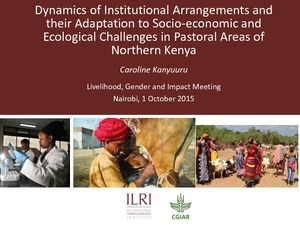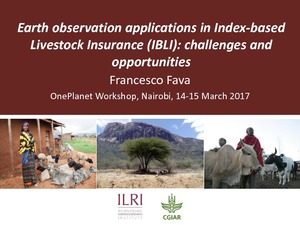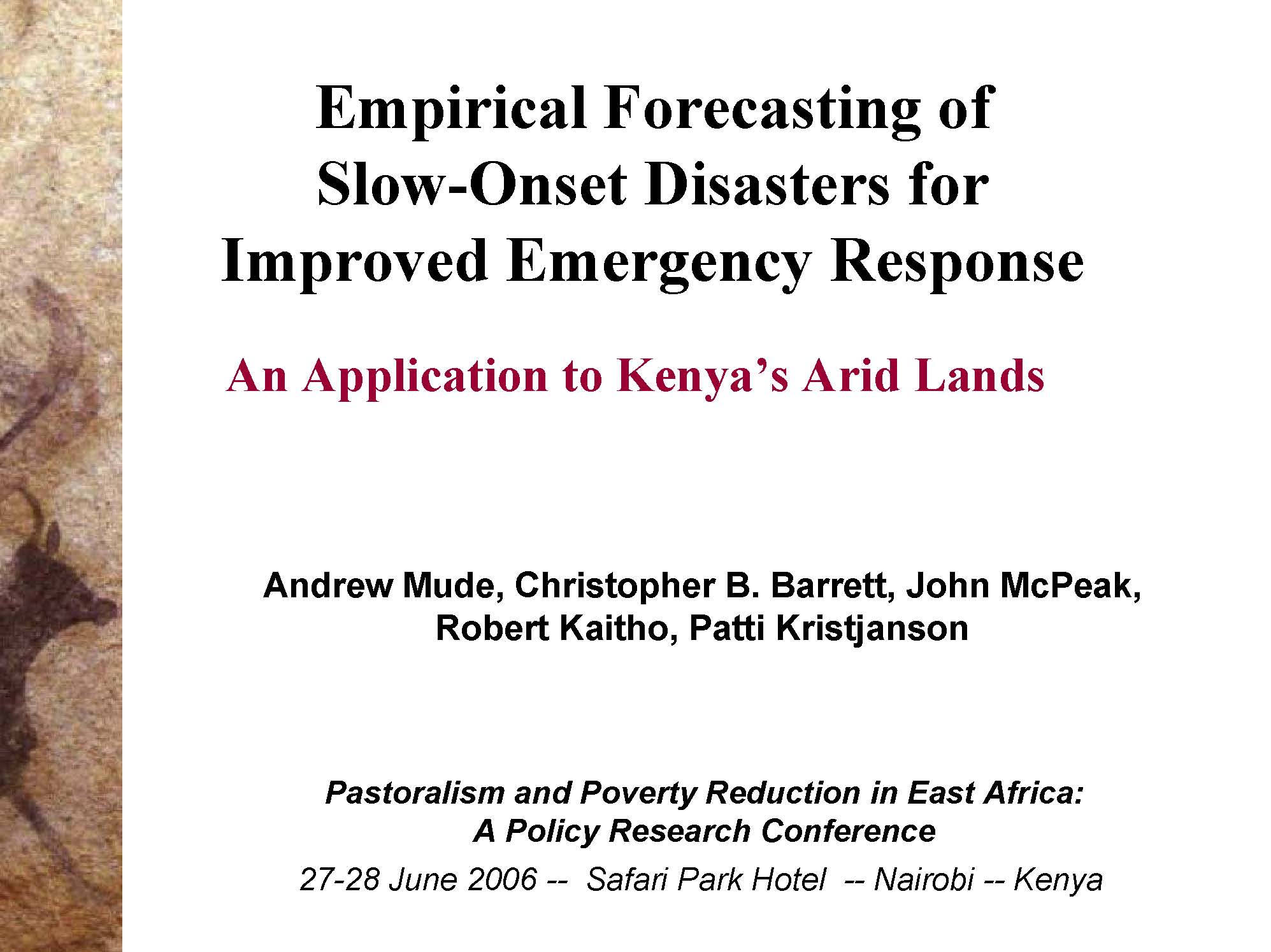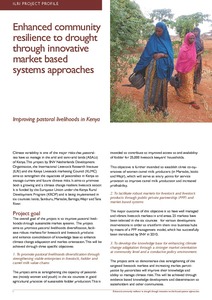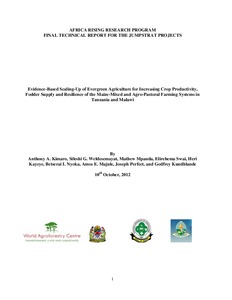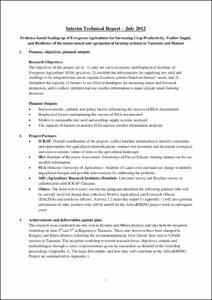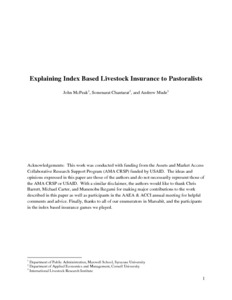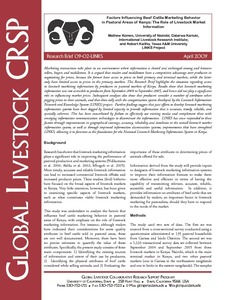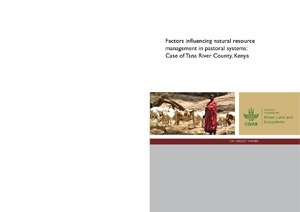Dynamics of institutional arrangements and their adaptation to socio-economic and ecological challenges in pastoral areas of northern Kenya
Enhanced community resilience to drought through innovative market based systems approaches: Improving pastoral livelihoods in Kenya
Evidence-based scaling-up of evergreen agriculture for increasing crop productivity, fodder supply and resilience of the maize-mixed and agro-pastoral farming systems in Tanzania and Malawi
Evidence-based Scaling-up of Evergreen Agriculture for Increasing Crop Productivity, Fodder Supply and Resilience of the maize-mixed and agropastoral farming systems in Tanzania and Malawi Interim technical report July 2012
Extent and implications of incorrect offspring-sire relationships in pastoral production system in Kajiado District, Kenya
The aim of this study was to evaluate accuracy of farmer's paternity identification which determines success of future breed selection and hence genetic gain. Paternity of 269 Orma/zebu and Sahiwal/zebu calves was evaluated using genetic markers and the likelihood based method. Results indicate that only 6.7% farmer alleged paternities were confirmed, 88% parent-offspring relationships were rejected and 18% parent-offspring relationships were undetermined. However, 82% of offsprings were assigned at least 80% confident paternities to one of the sampled candidate males.
Exclosure land management restores soil properties of degraded communal grazing lands in northern Ethiopia
In the northern highlands of Ethiopia, establishment of exclosures to restore degraded communal grazing lands has been practiced for the past three decades. However, empirical data on the effectiveness of exclosures in restoring degraded soils are lacking. We investigated the influence of exclosure age on degree of restoration of degraded soil and identified easily measurable biophysical and management-related factors that can be used to predict soil nutrient restoration.
Explaining index based livestock insurance to pastoralists
Livestock production in arid and semi-arid rangelands is a risky enterprise. Covariate risk of catastrophic livestock loss due to drought is the most critical uninsured risk facing livestock producers. These losses can lead to persistent poverty. We are trying to design an index based livestock insurance (IBLI) program as a viable means to help pastoralists in northern Kenya manage such covariate risk of livestock losses due to drought.
Factors influencing beef cattle marketing behavior in pastoral areas of Kenya: the role of livestock market information
Marketing transactions take place in an environment where information is shared and exchanged among and between sellers, buyers and middlemen. It is argued that traders and middlemen have a competitive advantage over producers in negotiating for prices, because the former have access to prices in both primary and terminal markets, while the latter only have limited access to prices in the primary markets. This Research Brief highlights the situation regarding access to livestock marketing information by producers in pastoral markets of Kenya.


